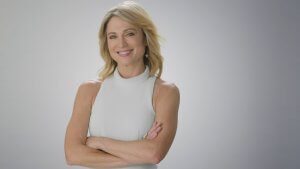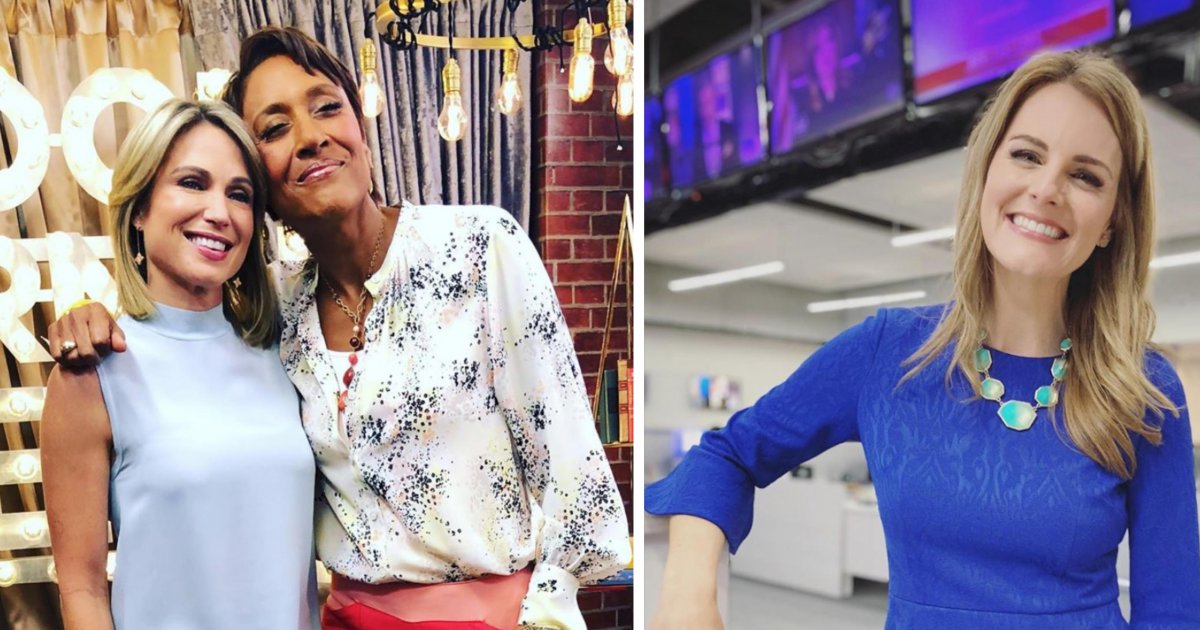Another high-profile television news figure has been diagnosed with cancer, with an enormous outpouring of support and hopefully a positive impact on awareness. It’s estimated that more than 250,000 women are diagnosed with breast cancer in the U.S. every year, and naturally, TV figures will get more attention. The hope here is that their experiences will have a positive impact on early screening and detection.
A local Oklahoma City reporter named Ali Meyer made national news this week after she revealed that she was diagnosed with breast cancer after getting a mammogram that she live-streamed last year — and she’s not the first TV journalist to use her experience with breast cancer to raise awareness for the disease. ABC journalists Robin Roberts and Amy Robach have both dealt with a diagnosis in the public eye — and Robach even received her’s after a live TV mammogram as well.
Read More“I had no concerns; no lumps; no family history; no reason at all to think that my baseline mammogram would turn my world upside down,” Meyer wrote in an article for the station she works at, KFOR. Still, her doctor found cancerous calcifications in her right breast. Further genetic testing revealed that she had no genetic predisposition to the disease, still, she was diagnosed with non-invasive ductal breast cancer (DCIS).
In her article about the experience, Meyer stressed the importance of early detection. She was treated with a mastectomy and her surgeons were able to re-construct her breast tissue. The journalist credited her surgeon with putting her back together “beautifully.”

Roberts and Robach, too, have used their respective experiences to raise awareness about screening and women being vigilant about their health. Robach recently sat down with SurvivorNet to share her experience with the disease. She had a similar experience to Meyer’s — when she was asked to have a mammogram on live TV for “Good Morning America” in front of millions of people in 2013, she never expected the results to come back positive.
Roberts, who had been diagnosed and battled breast cancer in the public eye in 2007, had a hand in convincing Robach to get the live-streamed mammogram. The Good Morning America anchor convinced her colleague that it would all be worth it if she could convince just one woman to get screened early. Robach, who only 39 at the time and wasn’t planning to begin breast cancer screening until she was 50, is so thankful she agreed. Now, she’s using her experience with the disease to live her life better than she was before — and to spread the awareness message.
“Instead of feeling like I’m a victim, like this happened to me, I really feel like … what can I do to make my body stronger? So, for me, I’ve been weight-lifting and running and I’ve taken some control back,” Robach said. “So I may not have the breasts I once had, but I’ve got guns that I never had before. So for me, that’s a trade-off that I’m OK with. That’s kind of how I’ve done it, because I do think, when you’ve lost so much control over your body, when you can take back a little bit — or a lot — it feels pretty damn good.”
Taking control of your life and your health is the message all three women, who have now had the experience of going through breast cancer in the public eye, really emphasize. That goes for women being vigilant about screening and monitoring health, as well as for women who have already been diagnosed with cancer. In the same interview, when asked what advice she would give to other women with cancer, Robach said advocating for yourself is so incredibly important.

“When you talk to enough people, you do the research, you see what the pros and cons are … then you know in your gut what the right decision is,” Robach said. “Don’t ever let a doctor tell you what you have to do, what you cannot do. You insist on what you know is right for you. I think we have incredible intuition when it comes to our bodies.”
Learn more about SurvivorNet's rigorous medical review process.


